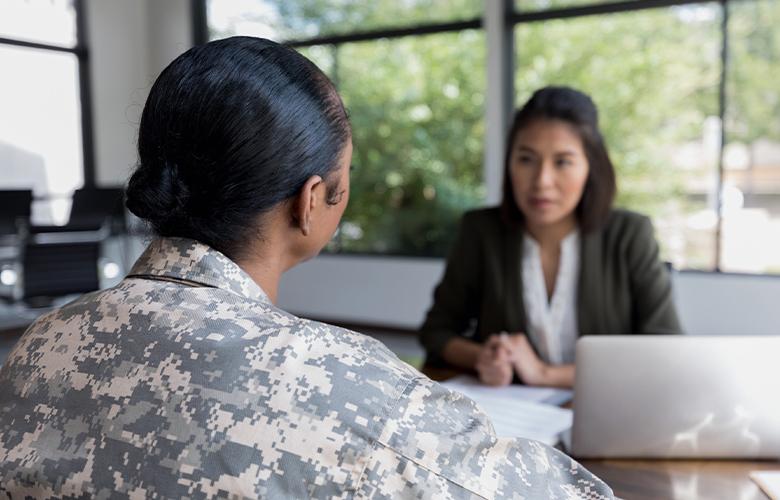
My uncle returned from the war, dumped his medals in a drawer, and slammed the drawer shut. He was 18 when he was drafted. A gifted artist and writer, he had thousands of stories to tell. But he never spoke a word about the war. He was haunted by memories and grief that he could not find words to express or lay to rest.
Not all veterans share my uncle’s struggles. But many veterans face challenges when they return to civilian life. I think about that every year when Veterans Day rolls around.
I was born on a military base. Ten members of my family served in the military—both of my parents, all of my uncles, and cousins. Whether my relatives were conscientious objectors or fighter pilots, their years in the military changed them physically, mentally, and emotionally and continued to shape them long after their service ended.
On behalf of my relatives, I appreciate a day devoted to honoring veterans. Yet a “Thank you for your service” is not enough. My uncle and other relatives needed strong, supportive bridges back to civilian life, which were lacking at the time. I wish they could have benefited from the resources available now for veterans, such as those we offer at EDC:
- PTSD Coach Online: This resource hub offers self-help tools to people who, like my uncle, live with post-traumatic stress disorder (PTSD) and experience mental health conditions that can interfere with their quality of life.
- Women Vets on Point: This initiative connects women veterans with free services and support focused on housing, employment, mental health needs, and more.
- VetChange: EDC maintains this great, free, confidential online program that helps veterans cut back on or stop drinking and learn to manage PTSD without using alcohol.
- Service Members, Veterans, and Their Families Technical Assistance Center: As the Center’s suicide prevention expert, EDC is delivering telephone and in-person technical assistance.
- Women Veterans in STEM: This initiative seeks to provide women veterans, like my mother, with career opportunities in STEM fields and has published white papers focused on topics such as transitioning to the civilian workforce and health and well-being.
I encourage you to explore these resources, especially if you have members of the military in your family. It’s great to honor veterans on November 11—as long as we provide them with meaningful support on the remaining 364 days.
| Kimberly Elliott is the director of communications for EDC’s U.S. Division, as well as a published author and experienced grant writer. |

Comments
Add new comment